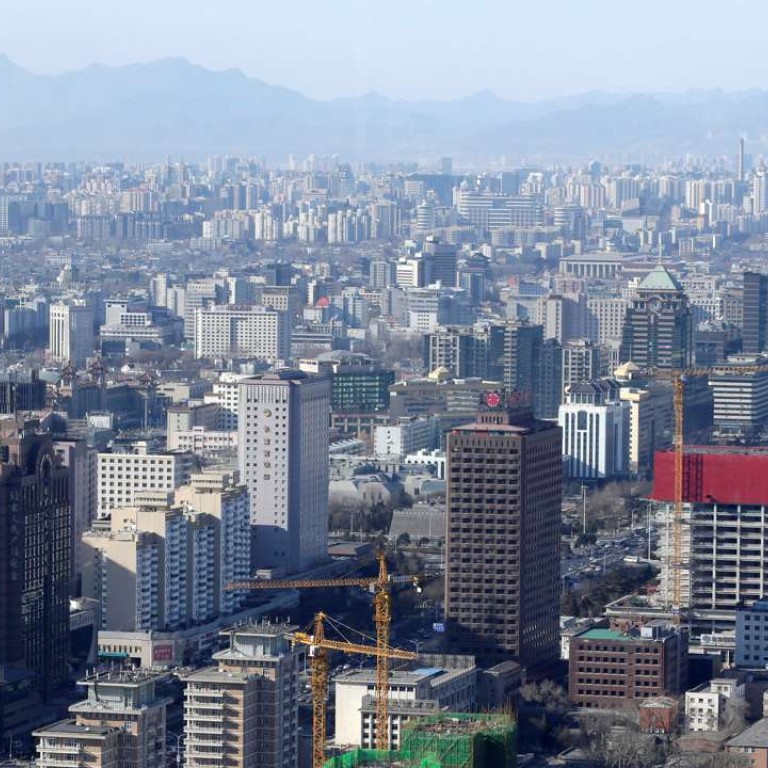
Beijing rolls out harshest ever home buyer down payment levels
For ‘non-ordinary’ purchases – which cover most trade-up buyers – the minimum payment has been raised to 80 per cent
Beijing municipal government imposed the harshest down payment requirements in history on Friday, after previous property cooling measures failed to prevent an ongoing and frenetic home-buying spree.
Down payments for second-time “ordinary home” buyers was raised to a minimum 60 per cent, from 50 per cent before, while second-time “non-ordinary home” buyers will have to pay a minimum of 80 per cent, up from 70 per cent, according to the city’s housing and banking authorities.
The capital’s authorities introduced the distinction between “ordinary” and “non-ordinary” home on September 30. Homes larger than 144 square metres, or with a price 20 per cent higher than government-set guidelines, are defined as “non-ordinary”, and are subject to higher down payment requirement.
Most of the city’s flats developed by the private sector would be considered “non-ordinary – which covers most trade-up buyers – the minimum payment has been raised to 80 per cent, the highest in Beijing history and the highest of all mainland cities.
Compounding the intensity of the latest cooling measures, the city has also toughed the definition of “first-time buyers”, with any buyers who has a mortgage history, no matter whether they own a flat or not, will not be considered “first-time buyers”.
Shanghai introduced that policy in its late November purchase curbs, but they were avoided in Beijing and other mainland cities.

The latest cooling measures also put a 25-year limit on all mortgage repayment periods, which is aimed at increasing borrowers’ monthly payments. The city adopted the measure last month, but only for second-time buyers.
The tougher measures come despite restrictive policies introduced since October, which have failed to douse investment and speculative demand, igniting another round of home purchasing and creating further price rallies since the Lunar New Year, especially in the existing home market.
The capital city sold 4,255 pre-owned home units between March 6 and 12, a 9.2 per cent rise on the previous week and the third consecutive weekly rise, according to Centaline Property.
In Beijing, 1,491 primary residential units were sold in the same period, representing a 24 per cent growth on the same period last month. Average new home prices jumped 6.85 per cent over previous week to 42,970 yuan (US$6,227) per sq m.
Beijing’s latest policies send a strong signal that price controls are likely to heighten in other big cities. There will be no easing in controls before the 19th Party Congress (due October or November)
“Beijing’s latest policies send a strong signal that price controls are likely to heighten in other big cities. There will be no easing in controls before the 19th Party Congress (due October or November). It is likely Beijing’s policy of considering people with no home but a mortgage record as ‘first-time buyers’ , will be copied by other cities,” said Yan Yuejin, an analyst with E-House China R&D Institute.
Since the National People’s Congress, China’s annual legislative gathering, ended on March 15, three cities – Qingdao, Nanjing and Ningbo – have also stepped up their home-purchase restriction policies.
Nationally, home sales by volume for the first two months of this year were up 26 per cent year-on-year, reflecting a slowdown from 34.8 per cent growth for 2016, according to the National Bureau of Statistics.
But sales in value terms grew 25.1 per cent in the first two months on year, picking up from 22.5 per cent in 2016, suggesting home prices continue to race ahead.
Yan said Shanghai’s policy of not recognising people with mortgage records as “first-time buyers” explained why it had faced smaller upward price pressure. Shanghai still imposes 50 per cent, and 70 per cent down-payment requirements for ordinary and non-ordinary homes.
Yan said he expected housing transaction volumes to fall in Beijing, as less buyers will be able to afford the 80 per cent down-payment requirement, easing the price rally.

